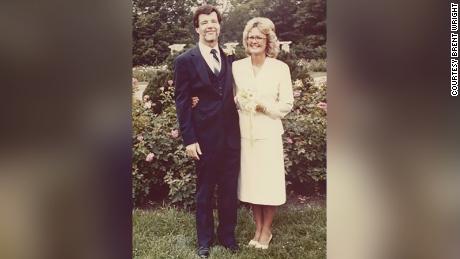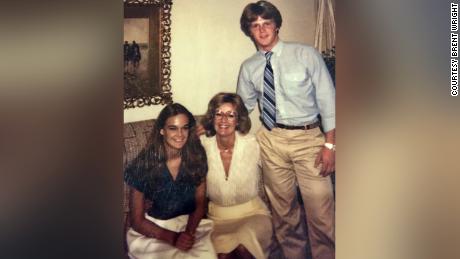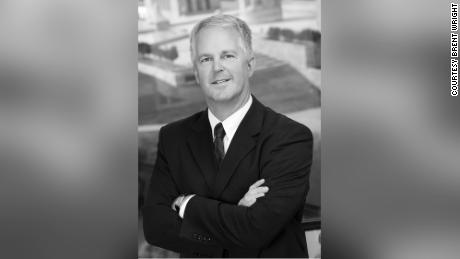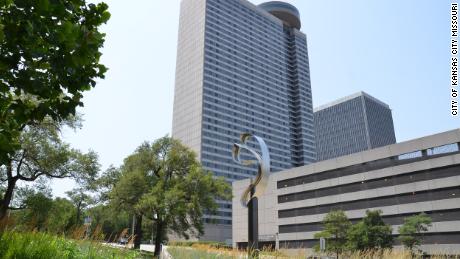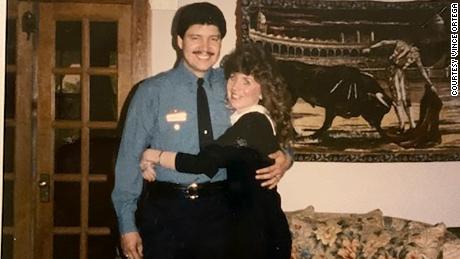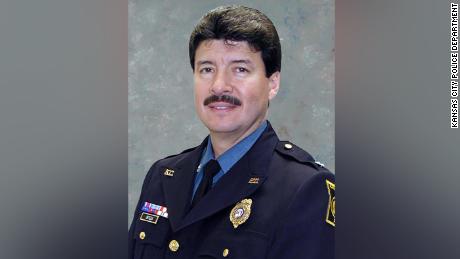40 years before Surfside, a collapse in Kansas City killed 114 people. Here's what we've learned from that disaster
Updated 0906 GMT (1706 HKT) July 17, 2021
(CNN)On a balmy Missouri evening in 1981, this was one of the hottest places to be.
More than 1,500 revelers had gathered on the first floor of the Kansas City Hyatt Regency for a popular tea dance party hosted by the swanky 1-year-old hotel.
As musicians performed big band hits, couples swing-danced under long, novel skywalks spanning the second and fourth floors that seemed to float in the sky, historians have recalled.
Then, as the orchestra was said to be playing Duke Ellington's "Satin Doll," the fourth-floor skywalk collapsed onto the second-floor skywalk directly beneath it. Both walkways then crashed onto the ground floor, killing 114 people and injuring more than 200 others.
The catastrophe on July 17, 1981, is one of the deadliest structural collapses in US history. That same year, the Champlain Towers South condo building in Surfside, Florida, was completed -- only to meet a similar, disastrous fate this June, when it partially collapsed killing at least 97 people.
Forty years after the Kansas City disaster, the memories are still vivid. And the lessons learned from it are as relevant as ever -- not just for engineers and architects but for everyone, several people close to the tragedy told CNN.
Here's what they want Americans to remember:
Don't rush to judgment, and don't ignore the details
Bill Quatman was a 23-year-old architect just starting his career in Kansas City. He wasn't involved in the design of the skywalks, but he marveled at the way they seemed to float in the air -- an unusual sight at the time, he said.
He and his wife had dined at the hotel a week before the collapse and had noticed another spectacle:
"A few thousand people were enjoying themselves at a tea dance, listening to big band music from an orchestra, dancing and laughing to tunes of Glenn Miller, Tommy Dorsey, Duke Ellington," Quatman said.
"We saw this tea dance going on (and thought), 'That looks like fun; we should come back sometime.'"
But on the evening of July 17, they had other plans. That night -- after the skywalks fell -- a friend told Quatman about the tragedy but mistakenly said the hotel's roof had fallen in.
"The first 48 hours, nobody really knew the cause, but there was speculation -- just like there is today with the Surfside condos," Quatman said. "All sorts of theories floating around, and nobody knows ... I think one of the similarities is the rush to judgment."
The cause of the Surfside collapse is still under investigation.
One popular myth following the Kansas City disaster was that the song playing at the time of the collapse -- Ellington's "Satin Doll" -- somehow contributed to the skywalks falling, he said.
The theory was "harmonic vibrations from the band music caused the steel to oscillate," Quatman said. But experts and courts later determined there were fatal engineering design errors.
The original design had called for the second-floor and fourth-floor skywalks to both be supported with a set of steel hanger rods connected to the ceiling. But a design change was made over the phone between the steel fabricator and the structural engineer, Quatman said.
"They hung the second-floor bridge from the fourth-floor bridge and doubled the load on that connection, which was ultimately a fatal design change," he said.
The resulting design was "capable of withstanding only an estimated 30 percent of the mandated minimum," according to the American Society of Civil Engineers. A series of miscommunications and failures to double-check calculations and plans led to the collapse.
In the decades since, Quatman has spent much of his career as both an architect and lawyer speaking to engineering and architecture students to help prevent such catastrophic mistakes in the future.
"I always end my talks by saying you cannot ignore the small details," Quatman said. "The (connection) that failed was about 8 inches wide."
Don't take the 'simple things' for granted
Brent Wright was just 17 years old when he lost his mother and stepfather. Since then, every anniversary of the collapse has been challenging.
"Even though it's been 40 years, those memories come flooding back," said Wright, now 57. "It's emotional. All these years later, I still miss my mother and stepfather."
Karen and Gene Jeter had gotten married just 16 days before the skywalks collapsed. The newlyweds spent their final moments doing what Karen loved -- dancing.
It was a skill she insisted her son learn -- for the sake of his future dating life.
"When I was growing up, my mom said, 'Look, you need to learn how to dance. All the girls will love it if you actually know how to dance.' So she taught me how to dance," Wright said.
Footage of the Hyatt Regency's dance party showed his mother and stepfather having a glorious time, Wright said. The event was so popular, his father and future stepmother were also there.
But Wright didn't know that -- or about the tragedy that would change his life -- until the following day. On the night of the collapse, he was working the loading dock at a Macy's store to earn money for college.
"I had the radio turned on on the dock and heard something come over the radio about some accident. It wasn't clear what the details were," Wright recalled.
"I called my mom because I was going to ask her about it. Nobody answered."
Wright, who lived with his father at the time, came home that night and went right back to work early the next morning. Then his dad called him and told him to come home immediately.
"My dad just looked at us and said, 'I don't know any way to tell you this, but your mom and Gene were killed at the Hyatt collapse,'" Wright said. "It was absolutely awful."
The Jeters never got to see Wright and his younger sister Shelly become adults and have children of their own.
"They've missed so many things through the years," Wright said. "They missed me going to college, graduating from college, graduating from law school, getting married, having children. All those things, all those milestones in our lives. It's difficult, even 40 years later."
Over the years, he's learned to cope with grief -- a process he knows families of the Surfside victims are just beginning.
"You try not to forget the past but also try not to let all the grief or the difficulties from the past hold you back from going forward," he said. "I know my mom wanted that. She would have said, 'Go ahead and live your life and be happy. But don't forget me.' So we don't."
To ensure his mother, stepfather and 112 other victims are never forgotten, Wright became president of the Skywalk Memorial Foundation. It led efforts to create the Skywalk Memorial, which features a modern design evoking two people dancing, along with the names of those lost. It also honors the hundreds injured and the rescuers.
"Even all these years later, none of (the rescuers) have ever been able to forget what they saw, what they did, which was selfless," Wright said.
This anniversary, Wright is also remembering the dozens of lives lost in the collapse at the Surfside condo building.
"All those people in Florida, my heart breaks for them. I want them to know that there are people everywhere who are thinking about them, praying for them," he said.
"I hope that they get help from mental health professionals because it's not something you can do on your own."
And there's a lesson everyone can take away from such tragedies.
"We all have to remember not to take those day-to-day, simple things (like) family for granted. You just don't know when you may never have another chance to see them again," he said.
"It's a good reminder, and it's something I've tried to do as I live my life is to try not to take those things for granted."
The mental health needs of first responders are crucial
Vince Ortega, then 26, was the first Kansas City police officer dispatched to the scene.
On the police radio, "The way it came out was (an) elderly lady had fallen off the escalator," said Ortega, now 66.
More calls quickly followed, but nothing prepared him for what he saw when he arrived at the hotel.
"People were running out, bleeding from the head," he said.
"When I went in, I saw a dead body right away. The rubble had flattened the body out. I could tell it was a woman because she had a dress on."
Ortega had no idea what had collapsed. So fearing another imminent collapse, he tried to rush as many injured survivors as he could outside to safety.
"You're just helpless because you're bringing out just a few at a time, and there's a whole lobby full of people," he said.
"Then water started coming out of the walls."
The collapse of the skywalks broke the sprinkler system, flooding the floor with several inches of water, Ortega said.
No amount of academy training can fully prepare a first responder for such a mass tragedy, he said.
"There was this one gentleman who was underneath the rubble ... 'I need help! I need help!' And he had his arm sticking out from the rubble," Ortega said.
"So my (officer) friend grabbed his hand and started to pull him out, and his arm just came off. And my friend just dropped it and walked out the door. He actually never came back -- he never returned to the police department."
Such overwhelming trauma highlights the need for first responders to have adequate mental health support, Ortega said.
"Back then they didn't really offer the mental health assistance" needed, he said.
That changed after other officers who had responded to the collapse started leaving the force.
"They did it after people started not showing up for work. And they figured out nobody wanted to admit they got affected by it."
Ortega said he's lucky to come from a family of first responders -- including two firefighter brothers and a nurse mother -- who helped him cope with the trauma.
But some emergency workers can be haunted by feelings of inadequacy despite their most valiant efforts.
"You always wish you could have done a little more," Ortega said.
He now thinks about the first responders in Surfside, who have been digging through tons of rubble for weeks trying to find those still missing from the condo collapse. Digging through the wreckage, one Florida rescuer said, has also meant "emotionally digging for more strength to continue."
Ortega hopes the Surfside teams can benefit from the lessons learned 40 years ago in Kansas City.
"Once it's done, please seek counseling," Ortega said. "Over the years, I've seen people leave the job with mental health issues because of the overwhelming tragedy that they see over time."
"Everybody is vulnerable," he said. "I was just fortunate."



